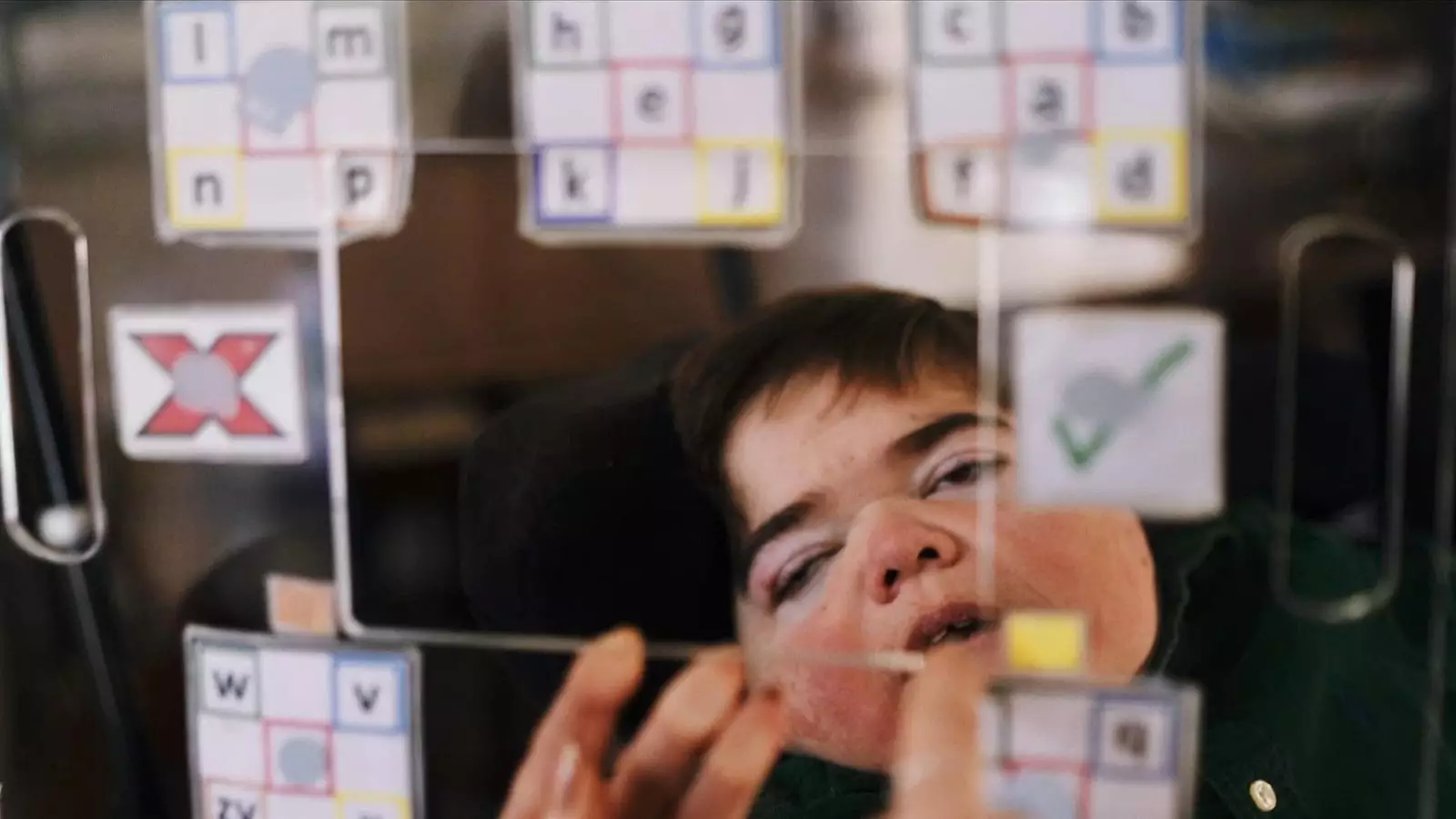In a world increasingly driven by digital communication and standardized testing, a profound gap remains in how we regard students with severe disabilities, particularly those labeled as having profound and multiple learning disabilities (PMLD). Jonathan Bryan, a remarkable teenager who has navigated the challenges posed by severe cerebral palsy, epitomizes the journey from being misunderstood to becoming a beacon of hope and advocacy for non-verbal individuals. His story implores us to reconsider our preconceptions about disabled students and emphasizes the need to look beyond labels.
From the outset of his education, Bryan was pigeonholed by the label PMLD, relegating him to a sensory curriculum that stunted educational growth and curiosity. The false narrative embedded in this label led not only to a lack of intellectual engagement but to a complete disregard for his capabilities as a thinker and communicant. What Jonathan’s experience reveals is a disheartening reality where assumptions overshadow genuine understanding, ultimately harming the educational and social trajectories of students like him.
The Self-Fulfilling Prophecy of Low Expectations
One of Bryan’s compelling assertions is that the educational system often sets a self-fulfilling prophecy in motion. It’s not merely that children are placed in low-expectation environments; it’s an institutionalized failure to recognize the cognitive abilities of those unable to communicate in traditional ways. Instead of exploring their intelligence, educators often resign themselves to the belief that these students lack the ability to learn and grow beyond their perceived limitations. This dangerous line of thinking perpetuates a cycle of neglect and defeatism.
Bryan reminds us that “non-speaking is not the same as non-thinking”—a powerful assertion that underscores the significant intellectual potential residing within non-verbal individuals that is routinely overlooked. The resulting invisibility can lead to devastating consequences: a lifetime in which these scholars exist unscripted in their thoughts, bereft of the means to express their unique identities and ideas. This isolation not only robs them of authentic connections with others but also deprives society of their rich contributions.
A Call to Action for Educators
Jonathan Bryan’s journey has not only provided him with a “voice of the voiceless” but also highlights a key responsibility that educators must assume: to raise their expectations. His message to teachers is straightforward: “Please don’t underestimate your pupils.” For educators and support staff, assumptions based on a student’s mode of communication can easily lead to intellectual neglect. Rather than simply viewing disability through a lens of limitation, educators must actively seek ways to connect with their students and innovate teaching methodologies that can engage diverse cognitive abilities.
Bryan’s mother played a pivotal role in challenging these assumptions, teaching him to read and write using an alphabet board. This personal lesson underscores a broader imperative: parental involvement, advocacy, and an unwavering belief in a child’s potential can alter the educational landscape significantly. Therefore, it falls upon educators to embrace this partnership with families and approach every student with an open mind, intentionally questioning preconceived notions of ability.
Bridging the Gap: From Advocacy to Action
Despite his achievements, Bryan acknowledges that the road ahead remains fraught with obstacles for those with disabilities. His call for systemic change resonates louder than ever, emphasizing the urgent need for educational reforms that prioritize literacy and learning for all students, regardless of their challenges. The fight against segregation in educational settings, the fight for adequate resources, and the push for effective communication strategies must be at the forefront of a compassionate educational model.
With initiatives like his charity, Teach Us Too, Bryan is spearheading efforts to advocate for changes that empower families and promote literacy for students with learning disabilities. This not only allows these students to narrate their own stories but encourages others who face similar hurdles to find their voice—a task that is too often underestimated. His narrative is a testament to the strength of perseverance and the power of a well-placed alphabet board.
In the end, the plea from Jonathan Bryan serves as a rallying cry for education systems worldwide. It’s time we dismantle harmful stereotypes and foster an environment rich in opportunity for every learner, regardless of their communication style or perceived disabilities. His insightful journey serves as an essential reminder that when we facilitate learning without limitations, we cultivate a society that benefits from the diverse minds and stories of all its members.

